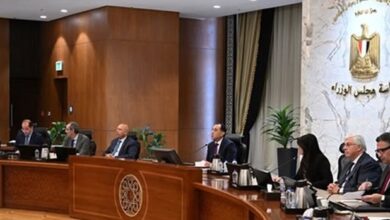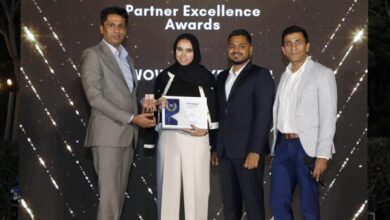Injaz Egypt on Saturday announced the winners of its competition “Dare to Dream: Egypt’s Young Entrepreneurs Competition,” handing out LE 350,000 to 10 student teams. They also received help from corporations such as Mobinil, Exxon Mobil, Abraaj and Boeing in making the team's fledging companies financially sound, legally registered, profitable and sustainable.
The awards ceremony, which was hosted by the American University in Cairo, celebrated young entrepreneurs who succeeded in starting their own companies and creating the best products. There were 21 competitors, all from Egyptian universities.
The Dare to Dream Competition is the culmination of the INJAZ Company Program (CP). During the school year, CP students meet at least once per week with their mentor and learn about assigning leadership roles in their company, conducting market research, deciding on their product, raising capital by selling shares, and manufacturing and marketing their product.
The winners were selected by a panel of professional judges specializing in entrepreneurship, based on the following key criteria: innovation, sustainability, usefulness, and profitability.
Each student company gave a brief presentation how they would manufacture their product.
“It was very challenging to display our vision, mission, and achievements since we hit the market, and future plans – in ten minutes,” said Noha Essam, human resources manager of Noon Company.
“The contest really represents a spur for innovation to our young generation. This is what the country is in dire need of now,” said Soha Mahmoud, Noon financial manager, standing beside her company’s booth. “The investment sector is almost paralyzed. It’s time to produce with our hands, instead of importing everything from abroad,” she said.
Before announcement of awards took place, competitors set up their booths to welcome visitors and promote their products. Each booth was created in a way that represents the product they sell. White Teeth booth was the most eye-catching among the others. It looked like an open-mouth where the team members stood inside promoting a toothbrush with built in toothpaste and tooth wipes.
Other teams sought interesting ways to capture visitors’ attention. While some cheered for their company’s name, others performed dance and song.
The awards ceremony opened with inspiring words from Sherif Kamel, the dean of the School of Business at the AUC: “This is not the start or the end. It’s a continuous journey that never stops and it goes on and on.”
Kamel believes that both leadership and innovation are the basic components of success, adding, “You cannot be permanently successful without being very passionate and continuously pushing all the way.”
Dina al-Mofty, executive manager Egypt Injaz, echoed his statement. “As the youth was able to achieve the impossible in the revolution, you can also achieve the impossible economically. With your efforts and assertiveness, you can achieve all you want,” she said.
“Injaz didn’t just give us financial support, but psychological and professional as well,” said Wasfy, one of the young entrepreneurs who participated in Injaz’s 2010 competition and is now successfully running his own business.
The ten professional volunteers were honored for sharing their experiences and exerting great efforts in supporting the students during their mission.
Amid tears of happiness, the ceremony was capped off by prizes to winning teams: Unusual Egypt, Al-Sherka Al-Handesaya, Soletrik, Basmety, Imagineers, Bara2a, Simpion, Infinite Inspiring Innovation, Axology and Recyclobekia.
Injaz was first launched as a pilot project as part of the Save the Children NGO in 2003. Since then it has expanded its efforts to elevate economic education in Egypt. In partnership with the Education Ministry, the initiative is supported by leading Egyptian business foundations.
Since 2003, 141,813 students from local schools and universities have enrolled in Injaz's educational programs. In the academic year 2010-2011, Injaz worked with 61,080 students in over 167 schools, as well as 11 universities and 19 governorates, with the help of 400 volunteers from 16 private sector companies.




